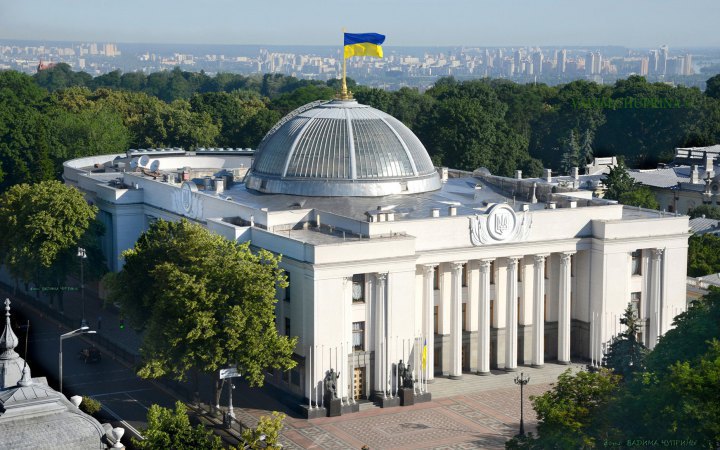Today, 21 August, the Verkhovna Rada supported the ratification of the Rome Statute.
This was announced by MP Yaroslav Zheleznyak.
There were 281 MPs in favour.
According to Zheleznyak, MPs received letters of support from the General Staff and Budanov before the vote.
‘There was a very difficult discussion during the consideration. There were many speeches both for and against,’ the MP said.
For his part, Pavlo Frolov, chief consultant to the Verkhovna Rada's Secretariat, said that the parliament had passed Law 0285, which ratified the Rome Statute of the International Criminal Court (ICC). However, the ICC will not have jurisdiction over Ukrainian citizens under the war crimes article for 7 years.
Frolov notes that by the adopted law, Ukraine has recognised the jurisdiction of the International Criminal Court in The Hague over crimes against humanity, genocide and war crimes since 22 November 2013, as well as the crime of aggression since 17 July 2018.
The ratification of the Rome Statute will enable Ukraine to become a full member of the ICC, to submit candidates for the election of judges and prosecutors to the ICC and to participate in the Assembly of States Parties to the Rome Statute.
Ukraine signed the Rome Statute in 2000. Since then, 123 countries have ratified it, and it is one of the conditions for European integration.
Ratification of the Rome Statute will help bring Russian war criminals to justice.
Before the vote, the Speaker of the Verkhovna Rada said that the ratification of the statute was supported by the leadership of the General Staff of the Armed Forces.
According to Ukrinform, the purpose of the law is to implement the domestic procedures necessary for the entry into force of the Rome Statute of the International Criminal Court and amendments to it adopted by the Assembly of States Parties to the Rome Statute for Ukraine.
Ukraine declares that the ICC's requests for cooperation may be submitted both through diplomatic channels and directly to the Office of the Prosecutor General (for investigation and trial matters) or to the Ministry of Justice (for the execution of sentences and other decisions of the International Criminal Court made as a result of the proceedings).
At the same time, Ukraine declares that the ICC's request for cooperation and any documents attached thereto must be sent in Ukrainian or accompanied by a translation into Ukrainian.
The document on the ratification of the Rome Statute stipulates that Ukraine will not recognise the jurisdiction of the International Criminal Court for War Crimes for 7 years if it concerns Ukrainian citizens.
Ukraine plans to accede to the updated version of the ICC Statute, which also includes Article 8bis (according to which the crime of aggression means the planning, preparation, initiation or commission by a person in a position to exercise effective control over or direction of the political or military activities of a State of an act of aggression which, by its nature, gravity and extent, constitutes a flagrant violation of the UN Charter).
The Rome Statute will enter into force for Ukraine on the first day of the month following the 60th day after the date of deposit of the instrument of ratification with the Secretary-General of the United Nations.
After the entry into force of the law and the Rome Statute, the state will become a full member of the International Criminal Court and will be able to participate in the Assembly of States Parties to the ICC and shape the ICC's policy, nominate its candidate for the position of judge, approve the allocation of the ICC budget to ensure proper investigation of Russian crimes in Ukraine, participate in the election of judges and other elected officials (including the ICC prosecutor), and influence the development of amendments to the Rome Statute.
It is expected that the adoption of the law will ensure the necessary level of implementation of the provisions of the Rome Statute of the International Criminal Court on the criminal prosecution of international crimes (the crime of genocide, the crime of aggression, crimes against humanity and war crimes), as well as prevent legal and de facto impunity for crimes.
As of today, 124 states have ratified the Rome Statute of the ICC. China, India, Belarus, Turkey, and Kazakhstan, among others, have not signed or ratified the Statute.
Russia, like the United States, signed the statute but later withdrew its signature.








